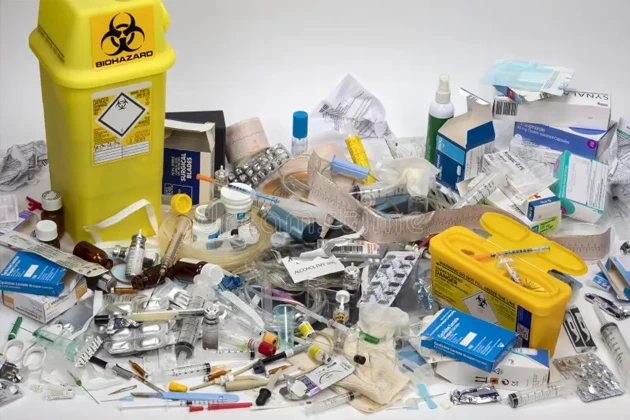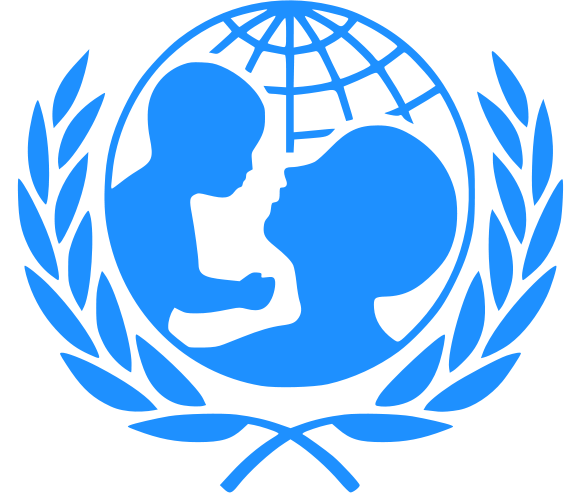Some medical experts have highlighted some health implications of improper medical wastes disposal, also proffering solutions for hospitals on proper ways to dispose medical wastes.
They spoke with the News Agency of Nigeria (NAN) in Ibadan on Thursday.
Speaking, the Oyo State Hospitals Management Board (OYSHMB)’s Chairman, Dr Akin Fagbemi, said that ideally, hospital waste should be sorted at the point where they were generated into non-hazardous waste.
Hazardous wastes, according to him, are more likely to cause harm and as such require special treatment.
Fagbemi said that hazardous waste s include infectious wastes which are contaminated by blood, body fluid, pathological waste which may contain body parts, foetus, placenta, among others.
“Use of designated containers is a good approach to waste segregation, for example, sharp box for sharps, colour coded bags to identify non-infectious, infectious and highly infectious waste.
“Labelling of waste containers is also important,” he stressed.
He emphasised that a major consequence of poor medical waste management and disposal is the transmission and spread of infectious diseases such as Viral Hepatitis and HIV.
The OYSHMB Chairman told NAN that some of such transmissions could occur in epidemic proportions.
“This could have far reaching consequences in terms of loss of lives and various levels of morbidity.
“It could also have severe economic consequences; this was experienced during the Ebola outbreak of 2014 when some unscrupulous individuals scavenged for used Personal Protective Equipment (PPEs) from disposal site.
“This is believed to have contributed in some measure to the epidemic in some sites, it could contaminate water sources equally with the potential of causing spread of diseases such as cholera.
“Also, chemical toxicity can occur from chemical waste,” he said.
Fagbemi said hospitals in the state largely carried out their waste management in line with the waste management policy to varying degrees.
“Generally, they conform to the basic principles to the extent that available resources permit.
“For instance, State Hospital, Oyo designated waste managers within the hospital for different kinds of waste, and the disposal of their hazardous waste has been devolved to a specialised commercial waste collector.
“Adeoyo Maternity Hospital has equally engaged the services of a commercial waste collector because of lack of sufficient space within the hospital premises to sacrifice a special space as a designated waste disposal site.
“Treatment of hazardous waste in our facilities is mainly by burning. We have not fully explored other options such as autoclaving which is equally very feasible.
“The overwhelming majority of the hospitals especially outside Ibadan practice open burning and burying. However, in some of the hospitals, the waste is not burnt frequently enough due to slow accumulation of the waste,” he said.
According to him, some facilities, such as Jericho Specialist Hospital, have locally fabricated incinerators which are safe and very effective.
“All our hospitals have their waste stored or disposed away from the reach of unauthorised humans, animals and scavengers.
“Most of them have their pits or incinerators located at secluded areas of the hospitals where it is impracticable like in Adeoyo Yemetu, waste disposal is outsourced,” he said.
The OYSHMB boss further advised hospitals and stakeholders to ensure promoting practices that reduced the volume of wastes generated.
He called on them to diligently ensure segregation of waste in all facilities; encourage less utilised and more environmentally friendly approach such as autoclaving for treatment of hazardous waste.
He also emphasised the need for continuous awareness creation and training of health workers on waste management and continuous monitoring of waste management practices by heads of facilities.
Also, the UCH Ibadan Chief Medical Director (CMD), Prof. Jesse Otegbayo, said if not properly disposed off, medical wastes could lead to contamination of the environment, spread of infectious diseases and an epidemic outbreak.
Otegbayo disclosed that the UCH, Ibadan, disposed medical wastes in accordance with the Medical Waste Disposal Policy.
“We use colour coded bins to demarcate medical wastes and burn them in an incinerator,” he said.
The UCH CMD emphasised that best practices to ensure appropriate disposal of medical waste should include use of autoclaving to treat infectious waste.
Otegbayo also stressed the importance of using incineration for pathological and hazardous wastes.
“There is also need to ensure safe landfilling practices for non-infectious waste and implement recycling programmes for non-infectious waste,” he said.
He urged the government to establish and enforce national guidelines and standards for medical waste management and allocate resources and funding for waste management infrastructure and training.
According to him, the government should conduct regular inspections and audits to ensure compliance and collaborate with private sector organisations to improve waste management practices.
“There is need to encourage research and development of new technologies and strategies for medical waste management.
“Appropriate sanction should be given to any erring institution,” he said .
He further advised hospitals to always separate infectious, non-infectious, and hazardous waste at the point of generation.
This, he added could, be achieved by colour coding of the wastes using leak-proof plastic bags.
“They should use proper storage materials, ensure health care workers wear PPE, train staff and implement waste reduction strategies.
“There is need for stakeholders to invest in proper infrastructure and educate the public about the importance of proper medical waste disposal,” Otegbayo said.
Similarly, Dr Muhammed Odedeji, Medical Director, Ashamby Hospital, Ibadan, described medical wastes as a waste generated from various medical activities, which could be within the hospital, clinics, etc .
Odedeji, also the Head of Afijio Local Government Health Authority, emphasised that medical wastes should not be disposed generally, they should be sorted before being disposed because of the metal ones such as sharps.
“In every corner of a hospital there must be a sharp box to dispose all the sharps.
“Wastes such as blood, urine and body fluids, should be disposed properly, not in the normal general place where people dispose wastes, because it can be contagious and cause infections to other people.
“If the wastes are not properly disposed, there are lots of accruing hazards while diseases are bound to spread.
“The sharps, if not well disposed, can pierce a passer by and the person can contract the disease suffered by the patient who was treated with the sharp, if the disease is a blood infectious one.
“Somebody can also contract tetanus(a dangerous infection)because the sharp is no longer sterile,” he said.
The medical practitioner opined that it could also cause air pollution which can pollute the atmosphere.
“We are not supposed to have what people call ‘hospital smell’; hospitals should smell normally if they are doing what they are supposed to do.
“In our hospital for instance, when you enter, you will ask whether we are treating people there or not because you will never smell anything like hospital.”
Odedeji further remarked that disposing wastes such as pad, gloves, drip plastic containers in nearby rivers could block waterways thereby leading to flooding.
“There should be an incinerator in hospitals; each hospital and environment should have waste managers that will ensure that wastes are well kept for proper disposal.
“Where there is no incinerator, they can dig a very big pit to be putting the wastes, by this. wind and animals cannot scatter them.
“Government should also improve on the waste management culture, to help prevent health hazards,” Odedeji said. (NAN)




